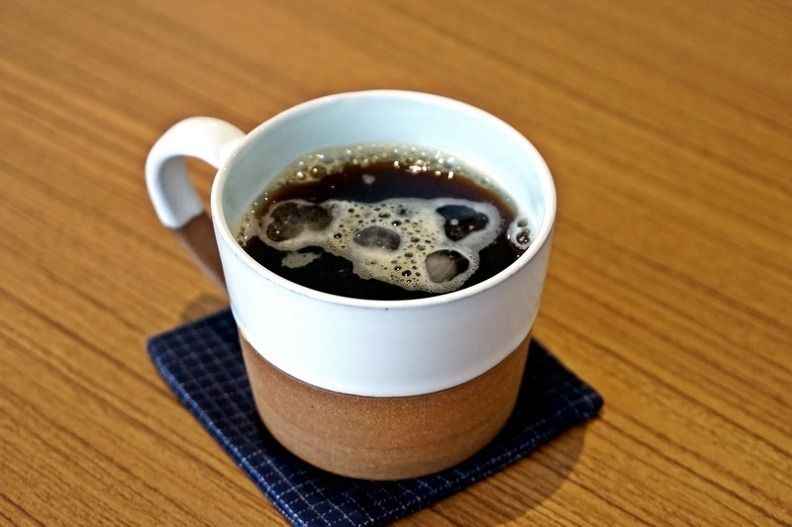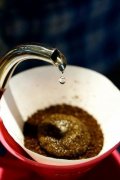Hartman Red Wine treatment Coffee is good? the method of making Hartman Coffee

For professional baristas, please follow the coffee workshop (Wechat official account cafe_style)
The family business has a state cup testing laboratory and a sample baking room. Rigorous cup test of each batch of coffee fruit. This ensures that the coffee quality at Hartman Manor is stable and is always looking for progress. Their scientific attitude towards coffee and nearly 100 years of family experience ensure their excellent production.
A legendary manor with a continental cup testing laboratory and a sample baking room. Yan Jin's attitude and strict standards ensure the stable quality of coffee at Hartman Manor.
This batch is Kaddura seed treated with red wine, which exudes super strong fruit wine aroma as soon as it is ground, accompanied by fresh aroma of smoked wood, and special sweet aroma of berries in the sun. After the entrance, it is accompanied by rich tropical fruit flavors, such as passion fruit, mango, orange and berry fruit juice and peach wine cocktail! No, this is a cocktail from nature!
At present, of all the coffee producing areas on the earth, very few red wine-like treatments have been successfully tested. After years of testing, this treatment has finally been able to control the acidic structure of coffee. Fermented coffee similar to red wine treatment greatly enhances the sweetness, cleanliness and multi-level complex and elegant acidity of the coffee. This fermentation method greatly improves the quality and uniqueness of coffee products.
Red wine treatment, also known as controllable fermentation, or lactic acid / acetic acid fermentation
The team, led by American Felipe Sardi, is made up of bioscientists and ecologists who use technologies such as solar energy to cultivate and process raw beans.
Special manual picking teams have been trained and picked strictly in accordance with the picking requirements of boutique coffee beans: immature fruits < 2%, defective beans < 3%, floating beans < 5%.
Acetic acid fermentation-aerobic fermentation
Lactic acid fermentation-anaerobic fermentation
Expectations for the taste:
Acetic acid fermentation: cleaner, more lively acid, brighter acid, citric acid
Lactic acid fermentation: taste more round, less cleanliness than acetic acid fermentation, higher alcohol thickness, malic acid / tartaric acid
Prior to this, the treatment plants used manual operations handed down from generation to generation, such as biting to feel the degree of fermentation of coffee beans. This kind of fermentation is uncontrollable and changeable.
The fermentation method can be controlled to monitor the fermentation degree by controlling the PH value. In order to achieve predictable results, and consistent production of each batch.
Kaddura, a single gene variant of Bourbon bourbon, was found in Brazil in 1937. It has better production capacity and disease resistance than bourbon, and the tree is shorter and easy to harvest. Unfortunately, like bourbon, it has the periodic problem of production capacity fluctuation every two years. But its adaptability is strong, do not need shade trees, direct exposure to the sun can also be full of vitality, called exposure coffee (Sun Coffee), can adapt to high-density planting, but must apply more fertilizer, increase the cost, so the acceptance of coffee farmers is not high in the initial stage.
But soybean prices soared in the 1970s, and farmers switched to Kaddura to increase production, which was vigorously promoted by the Brazilian and Colombian authorities and yielded fruitful results. The acceptance of Kaddura by farmers means a great change in planting technology. Brazil and Colombia switched to high-yield, high-density sun-exposed planting. by 1999 ○, 14 million bags of coffee beans could be harvested on 1 million hectares, increasing production capacity by 60%. No wonder Kaddura, with high production capacity and high quality, has become a variety relied on by various producing countries.
Kaddura is suitable for planting in the high altitude area from 700m to 1700 m. The adaptability to altitude is very strong. The higher the altitude, the better the flavor, and the production capacity is relatively reduced. This is the fate of fine beans. In academic circles, some people call Kaddura the bourbon of dense and exposed version, which can be said to hit the nail on the head. There is also a variety of yellow Kaddura (Caturra Amarello) in Central and South America, but the wind rating is not as good as Huang bourbon.
When Kaddura is slightly roasted, the sour aroma is obvious and the whole is bright. If handled properly, the sweetness can be very good, but the mellowness of coffee is relatively low compared with bourbon, and the cleanliness of the taste is a little less.
Kaddura usually has red berries, but there are very few areas with yellow Kaddura, such as Hawaii, where there are very few yellow Kaddura.
Country: Panama
Grade: SHG
Producing area: Walken producing area
Altitude: 1250-1700 Meters
Treatment method: red wine treatment
Variety: Kaddura
Manor: Hartman Manor
Flavor: smoked wood spices, berries, fruit wine
Kaddura red wine treatment of Hartmann Manor in Panama
Factory name: Qianjie Cafe address: No. 10 Baoqian Street, Yuexiu District, Guangzhou City, manufacturer contact: 38364473 ingredients Table: self-baking shelf life: 30 net content: 227g packaging: bulk taste: neutral coffee beans ripe degree: coffee cooked beans contain sugar: sugar-free origin: Panamanian coffee types: other roasting degree: moderate roasting
Introduction to Hartman Manor
Hartman's story, like his coffee, is legendary. Hartman Manor is located in Chilidge, Santa Clara. The founder is called Mr.Alois St. Hartmann (Luis Hartmann). He was born on June 20, 1891 in the Moravilla region of Austria and Hungary in what is now the Czech Republic, and died on May 25, 1970 at the age of 78.
After the beginning of World War I, he was abandoned as a little boy. Thanks to his mother, he was able to hide in a ship bound for Pennsylvania and survived. Both of his brothers died in the war after joining the army. Luis Hartmann and his friends traveled to some countries until he came to Panama in 1911 and settled in Chiriki province in 1912, mainly in the Kendra region. He built his first cabin in the primeval forest.
Today's Hartman Manor is a family business founded by Latip Hartman (son of Eloise) in 1940. In 1966 Latip married Dinola Sandy of Costa Rica. They have five sons, Latipa Jr., Alan, Alexander, Alice and Kelly. Each family member is responsible for the growth management, harvesting and handling of the coffee and the visit to the manor. A family estate that has grown coffee for more than 100 years is a legend in itself.
Hartman by hand. 15g powder, medium grinding (small Fuji ghost tooth cutter 4 grinding), v60 filter cup, 88-89 degrees water temperature, 30g water injection for the first time, steaming for 27 seconds, water injection to 105g water cut off, wait for the amount of water in the powder bed to reach half and then water injection, slow water injection until 225g water, no water powder ratio at the end, 1:15, extraction time 2:00
Important Notice :
前街咖啡 FrontStreet Coffee has moved to new addredd:
FrontStreet Coffee Address: 315,Donghua East Road,GuangZhou
Tel:020 38364473
- Prev

Hartman Red Wine treatment Coffee producing area introduces how to brew Hartman coffee
Professional barista communication please pay attention to the coffee workshop (Wechat official account cafe_style) this batch is treated with red wine Kaddura species, from a grinding out of a super strong fruit wine, accompanied by a fresh smell of smoked wood, coupled with the sun's special sweet and fragrant berries, smell it, you will be drunk. After the entrance, it is accompanied by rich tropical fruit flavors, such as passion fruit and mango.
- Next

Panama Duncan Estate Coffee How to make Panama coffee beans
Coffee Workshop (Weixin Official Accounts cafe_style ) Factory Name: Qianjie Coffee Address: No.10 Baoan Qianjie, Guangzhou City, Yuexiu District Shelf Life: 90 Net Content: 227g Packaging Method: Bulk Coffee Bean Ripe Degree: Coffee Ripe Bean Sugar: Sugar-Free Origin: Panama Dunken Country: Panama Grade: SHG Treatment
Related
- Does Rose Summer choose Blue, Green or Red? Detailed explanation of Rose Summer Coffee plots and Classification in Panamanian Jade Manor
- What is the difference between the origin, producing area, processing plant, cooperative and manor of coffee beans?
- How fine does the espresso powder fit? how to grind the espresso?
- Sca coffee roasting degree color card coffee roasting degree 8 roasting color values what do you mean?
- The practice of lattes: how to make lattes at home
- Introduction to Indonesian Fine Coffee beans-- Java Coffee producing area of Indonesian Arabica Coffee
- How much will the flavor of light and medium roasted rose summer be expressed? What baking level is rose summer suitable for?
- Introduction to the characteristics of washing, sun-drying or wet-planing coffee commonly used in Mantenin, Indonesia
- Price characteristics of Arabica Coffee Bean Starbucks introduction to Manning Coffee Bean Taste producing area Variety Manor
- What is the authentic Yega flavor? What are the flavor characteristics of the really excellent Yejasuffi coffee beans?

